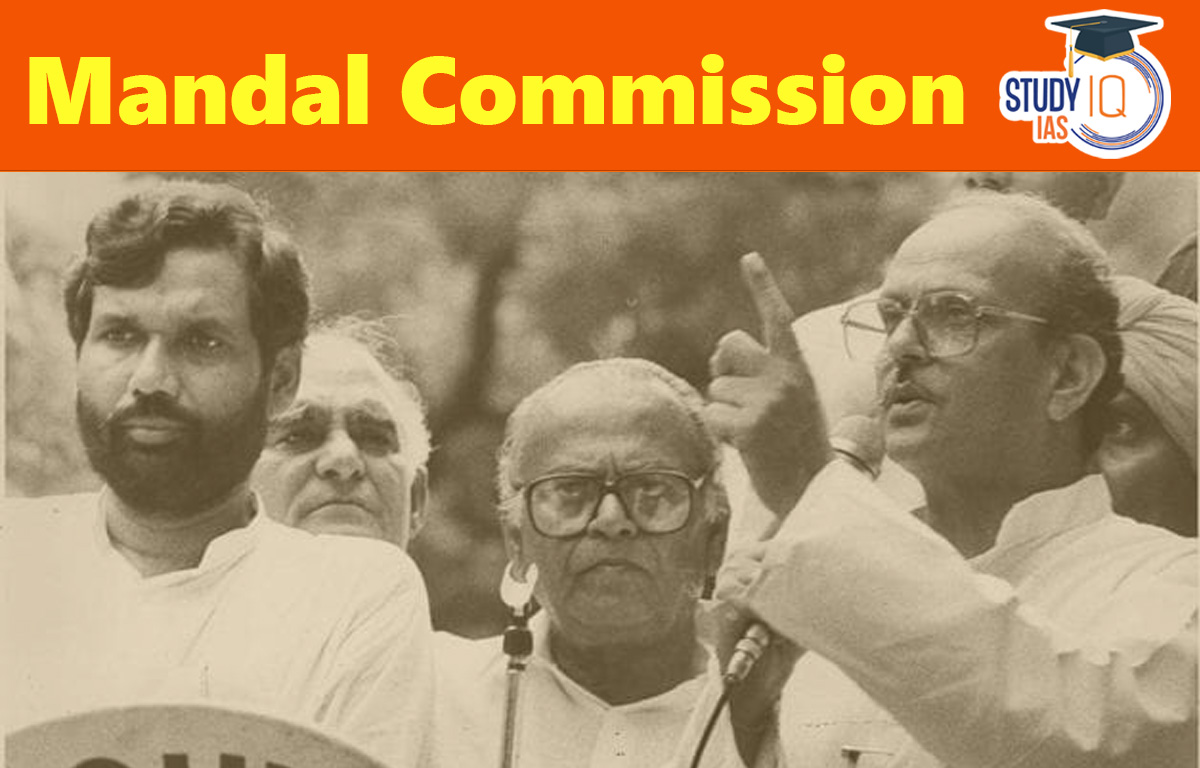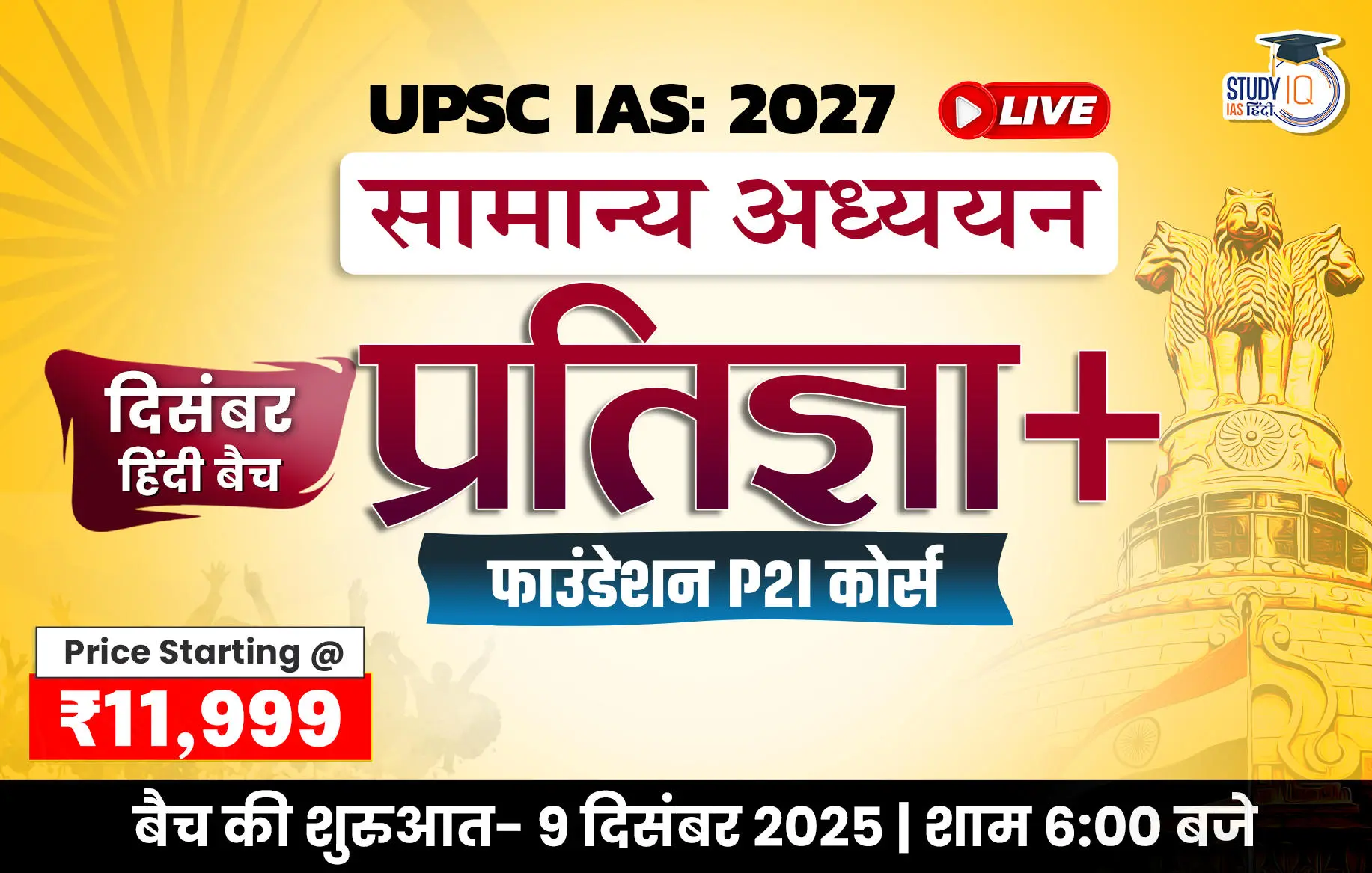Table of Contents
Mandal Commission
The Mandal Commission, also known as the Second Socially and Educationally Backward Classes Commission, was set up to identify backward classes in India. Led by B. P. Mandal, it submitted its report in 1980, and the recommendations were implemented in 1990. The commission found that 52% of India’s population belonged to Other Backward Classes (OBCs) and proposed that government job reservations match this percentage. However, this conflicted with a Supreme Court ruling from 1963, which capped reservations at 50%. At that time, there was already a 22.5% reservation for Scheduled Castes (SCs) and Scheduled Tribes (STs).
On August 7, 1990, the country’s then-prime minister, V.P. Singh, made a significant decision that changed Indian politics and the way social justice was upheld. The prior government decided to adopt the Mandal Commission’s recommendations and establish reservations for members of Other Backward Classes (OBCs) in government jobs.
Read More: Hunter Commission
Mandal Commission Background
The idea of caste-based reservations was first proposed by William Hunter and Jyotirao Phule in 1882, and it was put into practice through the Minto-Morley Reform in 1909, the Government of India Act in 1919, and other British reforms. The reservation system in India began in 1933 with the “Communal Award” by British Prime Minister Ramsay Macdonald, which also related to the Poona Pact. Initially, reservations were limited to Scheduled Castes (SC) and Scheduled Tribes (ST) after independence, excluding many affected castes. In 1991, following the Mandal Commission’s recommendations, a broader reservation policy was introduced that included Other Backward Classes (OBCs), marking a major step for the advancement of all underprivileged castes. The first backward classes commission was led by Kaka Kalelkar in 1953, but its report did not have much impact.
| History of Mandal Commission |
|
Mandal Commission Timeline
The events under the Mandal Commission Report were established.
| Year | Events |
| 1979 | A backward class commission under BP Mandal for defining the socially and educationally backward classes in India and to recommend steps for their upliftment. |
| 1980 | The report submitted that India’s population consisted of approximately 52% OBCs and thus suggested 27% reservation for them in government jobs. |
| 1980-1989 | the change in government in 1980 was not willing to implement the report. |
| 1990 | On 13th August government order was released for its implementation and VP Singh announced its legal implementation in his Independence Day speech. A widespread protest where students committed self-immolation in protest when the government showed its intent to implement it. |
| 1992 | The implementation was challenged and the court under Indra Sawhney V. Union of India upheld the constitutional validity of 27% reservation for the OBCs under certain conditions. |
Read More: Raleigh Commission
Mandal Commission Report
The Second Backward classes’ commission was appointed by the Morarji Desai Government in 1979, in terms of Article 340 of the Constitution to investigate the conditions of the socially and educationally backward classes and suggest measures for their advancement. Mandal Commission was headed by Bindeshwari Prasad Mandal. The commission submitted its report in 1980 and identified as many as 3743 castes as socially and educationally backward classes, which constitute nearly 52% of the population, excluding the scheduled castes (SCs) and the scheduled tribes (STs).
The commission recommended the reservation of 27% of government jobs for the Other Backward Classes (OBCs) so that the total reservation for all ((SCs, STs and OBCs) amounts to 50%. After 10 years of making these recommendations, V.P. Singh Government declared a reservation of 27% of government jobs for the OBCs in 1990. Narasimha Rao Government in 1991 introduced two changes such as,
- Economic Criteria: Adoption of the economic criteria in granting reservation and giving preference to the poorer sections among the OBCs in the 27% quota.
- EWS Reservation: Reservation of another 10% of jobs for poorer (economically backwards) sections of higher castes who are not covered by any existing schemes of reservation.
Read More: Sadler Commission
Mandal Commission Case
In the Indra Sawhney case, 1992 popularly known as the Mandal case, the scope and extent of Article 16(4), which provides for the reservation of jobs in favour of backward classes, have been examined thoroughly by the Supreme Court. Though the Court has rejected the additional reservation of 10% for poorer sections of higher castes, it upheld the constitutional validity of 27% reservation for the OBCs under certain conditions.
Reasons for Mandal Commission Establishment
India’s history of untouchability and the caste system created a need for a way to combat these practices in today’s society. The reservation system was established as a form of positive discrimination to support disadvantaged groups who have faced discrimination based on their caste. This system aims to improve access to government jobs, education, and political representation for these groups. Its goal is to promote equality by providing affected castes with equal opportunities, helping them rise socially, and advancing the most marginalized in society.
Merit and Demerit of Mandal Commission
Merits of the Mandal Commission
- Social Justice: It aimed to address inequalities in Indian society through a reservation system.
- Political Mobilization: The report energized backward classes politically, changing the political landscape.
- Economic Upliftment: Reservations have helped some economically disadvantaged OBC individuals improve their living conditions.
Demerits of the Mandal Commission
- Caste-based Division: Critics believe it increased caste divisions by focusing primarily on caste for reservations.
- Lack of Economic Focus: Some argue that economic factors should have been more important in determining backwardness.
- Inconsistent Implementation: The recommendations were not uniformly applied across states, causing disparities.
Impact of the Mandal Commission
- In 1990, when Prime Minister V P Singh announced the implementation of the recommendations, it led to violent protests in northern and western India, with tragic incidents of self-immolation among students.
- In southern states, the reaction was milder due to already high reservation percentages (around 50%) and a smaller upper caste population (less than 10%). The industrial sector also offered alternative job opportunities, reducing reliance on government jobs.
- In 1992, the Supreme Court upheld the 27% OBC reservation but noted that social and educational backwardness shouldn’t rely solely on caste and emphasized excluding the ‘creamy layer’ from benefits. When Prime Minister Narasimha Rao planned to implement these recommendations in 1993, public resistance was minimal.
Mandal Commission UPSC
India’s reservation policy was developed in large part as a result of the Mandal Commission Report. Expanding the population that benefited from it, it caused considerable modifications to the reservation policy. The reservation policy clearly affected the general populace negatively by reducing their chances, but it was important to free underprivileged people from the cycle of discrimination and poverty.
After the Mandal Commission’s Report, numerous changes and regulations were made. Despite the report’s flaws, they were greatly improved after they were refuted in the Indira Sawhney case, and in 1992 a very advantageous reservation policy for OBCs in central government services was implemented.
In addition, the government has not made any notable steps to put the Mandal Commission’s suggested structural modifications into action. The foundation of the rural economy, agriculture, is no longer economically feasible. For a more successful outcome, some key components of the recommendation must be added after the implementation of the reservation policy.


 SLAPP Suits: Meaning, Examples, Impact o...
SLAPP Suits: Meaning, Examples, Impact o...
 Finance Commission of India, Articles an...
Finance Commission of India, Articles an...
 High Number of Pending Cases in Supreme ...
High Number of Pending Cases in Supreme ...

























